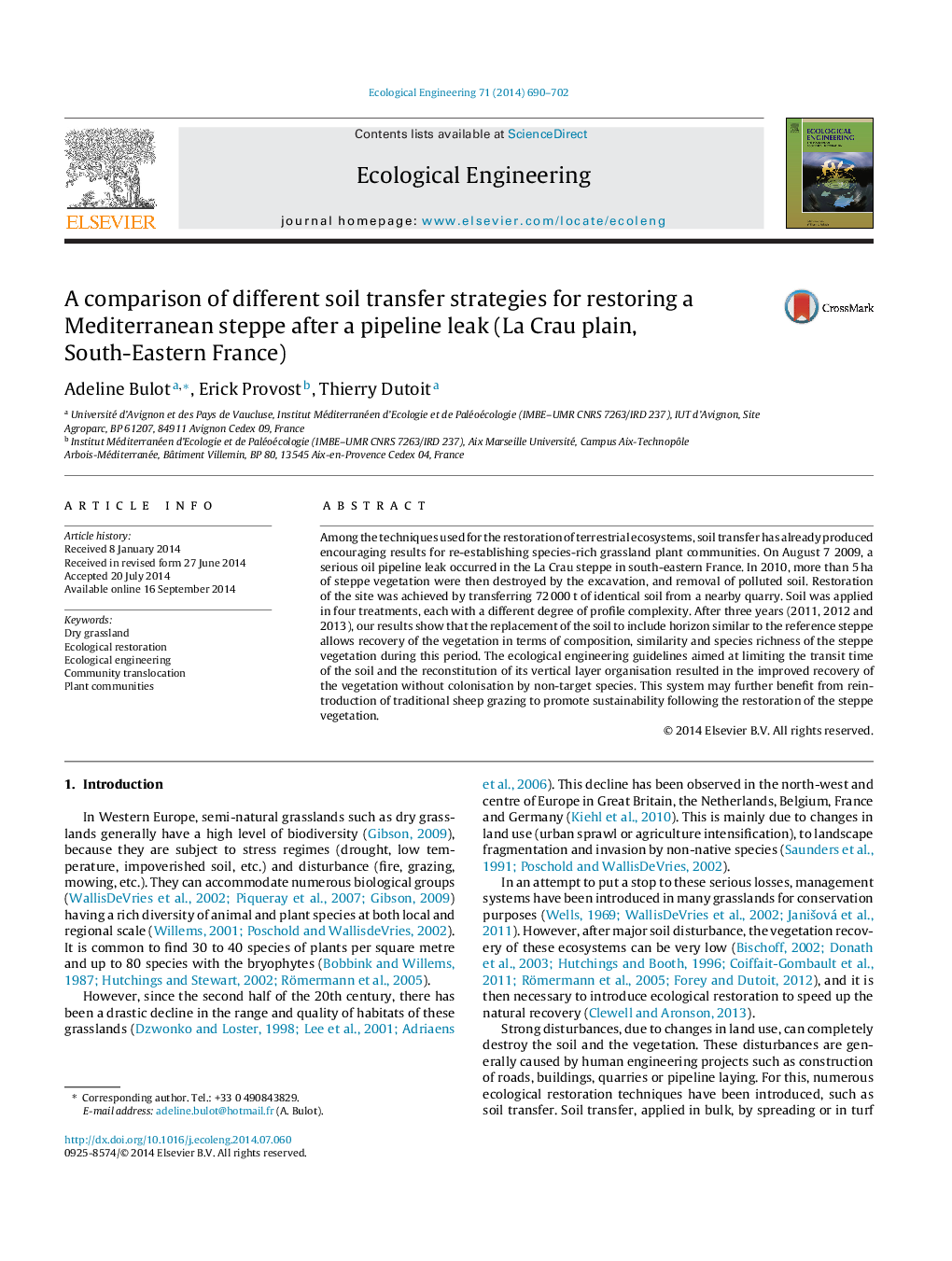| Article ID | Journal | Published Year | Pages | File Type |
|---|---|---|---|---|
| 4389212 | Ecological Engineering | 2014 | 13 Pages |
•Several soil transfer techniques to restore a species rich steppe have been tested.•The total reconstitution of the main soil layers has showed the best results for vegetation restoration.•The transfer of the altered bedrock only did not result in the restoration of either the composition or plant species richness of the reference undisturbed steppe.•Due to ecological engineering guidelines, vegetation recovery was improved without colonisation of non-target species.•Any treatment has nevertheless restored the plant community structure in the short term (3 years).
Among the techniques used for the restoration of terrestrial ecosystems, soil transfer has already produced encouraging results for re-establishing species-rich grassland plant communities. On August 7 2009, a serious oil pipeline leak occurred in the La Crau steppe in south-eastern France. In 2010, more than 5 ha of steppe vegetation were then destroyed by the excavation, and removal of polluted soil. Restoration of the site was achieved by transferring 72 000 t of identical soil from a nearby quarry. Soil was applied in four treatments, each with a different degree of profile complexity. After three years (2011, 2012 and 2013), our results show that the replacement of the soil to include horizon similar to the reference steppe allows recovery of the vegetation in terms of composition, similarity and species richness of the steppe vegetation during this period. The ecological engineering guidelines aimed at limiting the transit time of the soil and the reconstitution of its vertical layer organisation resulted in the improved recovery of the vegetation without colonisation by non-target species. This system may further benefit from reintroduction of traditional sheep grazing to promote sustainability following the restoration of the steppe vegetation.
Graphical abstractFigure optionsDownload full-size imageDownload as PowerPoint slide
